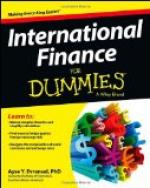At least the war is teaching us that the wealth of a nation is not a pile of commodities to be frittered away in vulgar ostentation and stupid self-indulgence, but the number of its citizens who are able and ready to play the man as workers or fighters when a time of trial comes. “National prosperity,” says Cobbett, “shows itself ... in the plentiful meal, the comfortable dwelling, the decent furniture and dress, the healthy and happy countenances, and the good morals of the labouring classes of the people.” So he wrote, in Newgate gaol, in 1810.[8] Since then many reformers have preached the same sound doctrine, but its application has made poor progress, in relation to the growth of our riches in the same period. If we now decide to put it into practice, we shall not long tolerate the existence in our midst of disease and destitution, and a system of distribution of the world’s goods which gives millions of our population no chance of full development.
We need not, then, stay to shed tears over the civilization, such as it was, which we thought we had and had not. Its good points will endure, for evil has a comfortable habit of killing itself and those who work it. All that we are concerned with at this moment is the fact that its downfall has shaken an article in our economic faith which taught us that specialization was a cause of so much more good than evil, that its development by the free spreading of our capital all over the world, wherever the demand for it gave most profit to the owner, was a tendency to be encouraged, or at least to be left free to work out its will. This was true enough to be a platitude as long as we could rely on peace. Our capital went forth and fertilized the world, and out of its growing produce the world enriched us. As the world developed its productive power, its goods poured into us, as the great free mart where all men were welcome to sell their wares. These goods came in exchange for our goods and services, and the more we bought the more we sold. When other nations took to dealing direct with one another, they wanted our capital to finance the business, and our ships to carry the goods. The world as a whole could not grow in wealth without enriching the people that was the greatest




